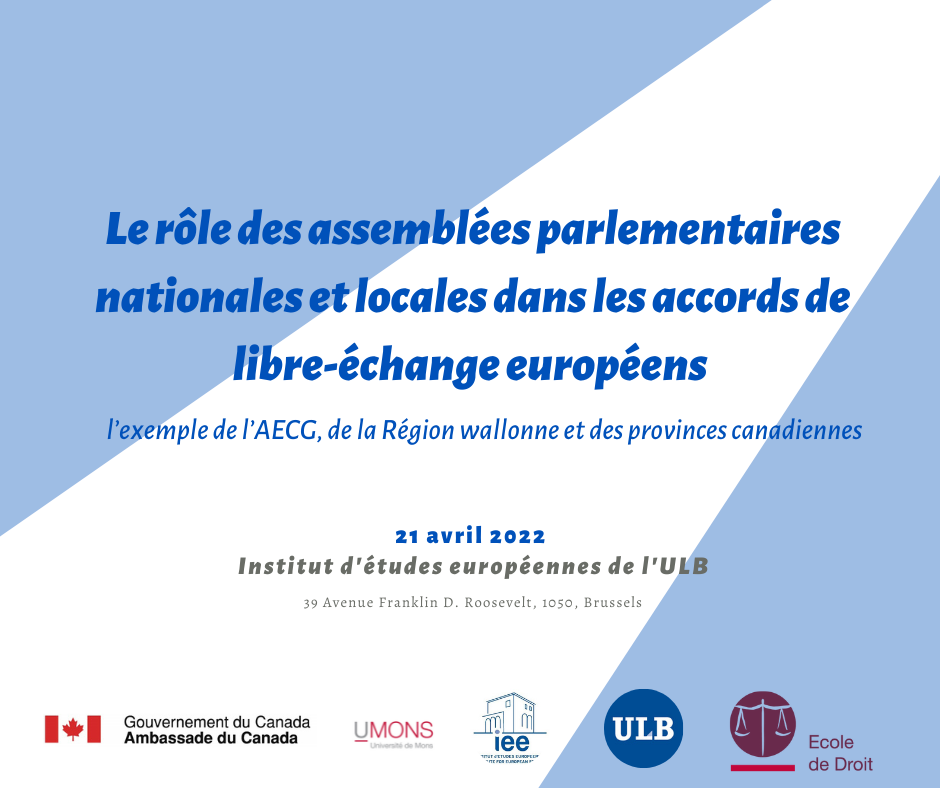About the event
As a mixed agreement, CETA must go through a lengthy ratification process within the European Union. This process requires the parliamentary assemblies of the Member States, whether national or local, to vote on the agreement insofar as the matters it covers fall within their competence. Some assemblies have not hesitated to express their reservations about European free trade policy. In relation to CETA, this was the case of the Walloon Parliament, the Cypriot House of Representatives and the French Senate. These positions raise several sets of questions. On the one hand, they raise questions about the role of parliamentary assemblies in European/national democracy within a federal state. Should a national or even local assembly be able to put a brake on the entry into force of a free trade agreement, even though it has been approved by the majority? On the contrary, is this the very essence of democracy? On the other hand, these positions highlight the place occupied by parliamentary assemblies in the construction of Europe. Although they are called upon to implement such agreements, parliamentary assemblies are not always closely involved in the negotiation process. Moreover, despite the reticence of some of them to the CETA, the latter has been provisionally applied since 2016.
The round table “The role of national and local parliamentary assemblies in European free trade agreements” will provide an opportunity to discuss these issues using the example of CETA, the Walloon Region and the Canadian provinces.
The round table will last 2 hours, between 4pm and 6pm. Each participant will have the opportunity to make a 15-minute presentation. The presentations will be followed by a debate with the audience of approximately 30 minutes.
Guests
- Paul Magnette (President of the socialist party)
- Georges-Louis Bouchez (President of the Reformist Mouvement)
- Anne-Emmanuelle Bourgaux (professor at UMons): intervention in relation to Belgian constitutional law issues
- Antoine Vandenbulke (professor at UMons): intervention in relation with the common commercial policy of the European Union
- Arnaud Zacharie (Secretary General of the CNCD): intervention in relation to the mobilisation of civil society during the CETA/TTIP negotiations
- Stéphane Paquin (Professor at the Ecole nationale d’administration publique – Québec): intervention in relation to the role played by the Canadian provinces during the CETA negotiations
- Louise Fromont (Research Fellow FNRS, ULB): Chair
Registration
Subject to any applicable health conditions, the round table will be held in a dual-mode format (face-to-face and online). It will be accessible in person and online upon registration.
Registrations are closed
